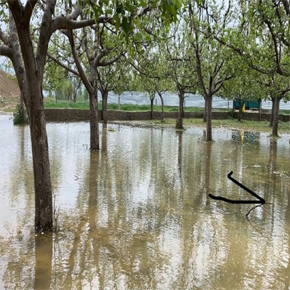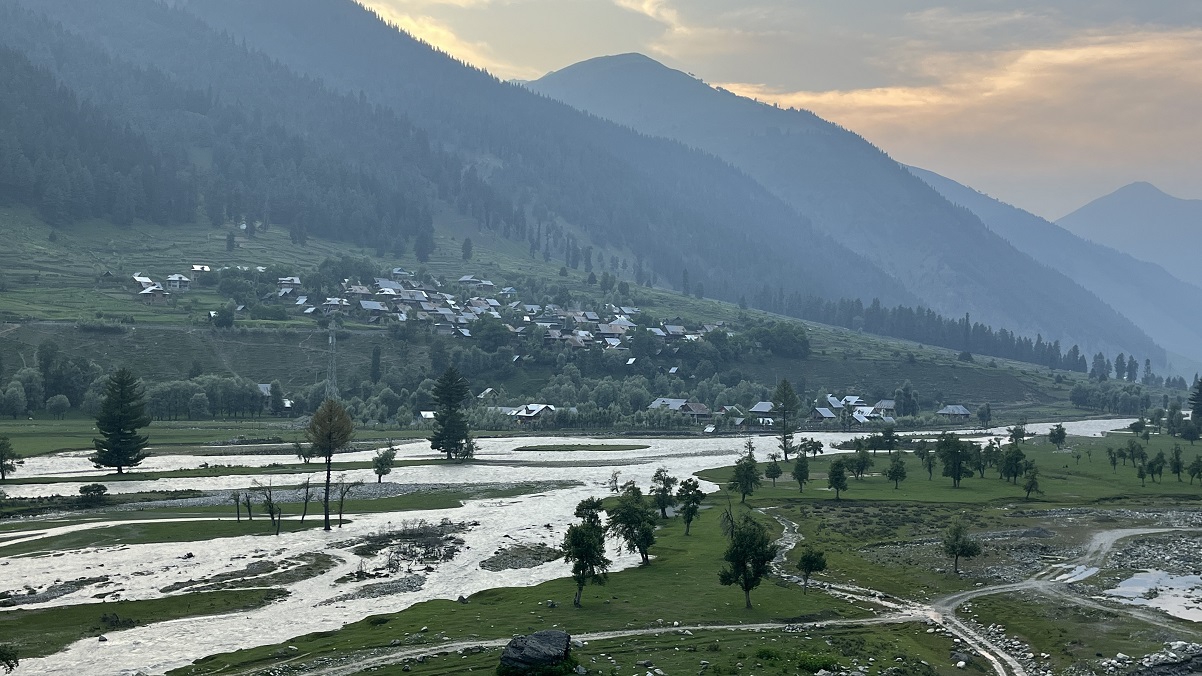In spite of stiff resistance from opposition, environmentalists, and activists the contentious Forest (Conservation) Amendment Bill, 2023 was passed by the Lok Sabha within 20 minutes of it being tabled in the Parliament on July 26, 2023.
While tabling the bill in Lok Sabha Union Minister of Environment, Forest and Climate Change Bhupender Yadav termed the bill to be progressive. He said that the Forest Conservation amendment bill is crucial for meeting Net-Zero emissions and creating a carbon sink to sequester 2.5-3 billion tonnes of carbon dioxide-equivalent by 2030 under the Nationally Determined Contribution targets.
Justifying the name change from Forest Conservation Act to Van (Sanrakshan Evam Samvardhan) Adhiniyam, which means Forest (Conservation and Augmentation) Act, the Union Minister said the name is “closest to the native language of people across India”
Once the bill becomes a law it will cause severe challenges in Himalayan states especially the areas near international border or LoC where there is no need to seek forest clearance for any “developmental project” related to defence or security issues. Pertinently the bill proposes forest land situated within 100 km along the international borders, Line of Control (LoC), or Line of Actual Control (LAC) can be used for construction of strategic linear projects for national importance or security. With the LoC or LAC stretch being mostly covered with forests especially in Jammu & Kashmir any construction work in these areas required forest clearance and if the FCA Bill 2023 becomes a law after being cleared by Rajya Sabha the said permission isn’t required at all as the Forest Department would almost lose control on these forests around international borders, LoC or LAC.
FCA Bill 2023
The Union Forest and Environment Minister introduced the Forest (Conservation) Amendment Bill also called FCA Bill 2023 amid protests by opposition MPs who were demanding a joint parliamentary committee (JPC) probe into the Gautam Adani issue.
The Government claims that the aim of the proposed changes in Forest Conservation Act 1980 is to build forest carbon stock by raising plantations. The bill also seeks to make land available for compensatory afforestation. The FCA Bill 2023 was sent to a joint committee of both the Houses of Parliament for discussion who submitted their report after holding several consultations. The Joint Parliamentary Committee (JPC) headed by Lok Sabha MP from Meerut Rajendra Aggarwal submitted its report to the Ministry of Environment & Forests only recently. The JPC in May this year had released a notice inviting suggestions on proposed law, considering its wider implications. It had sought views of the public in general, NGOs, experts, stakeholders and institutions in particular to be submitted before them. Hundreds of environmental experts had written to JPC and to the Union Minister as well requesting them not to go ahead with these amendments but it seems their views were sidelined.
400 Ecologists wrote to Union Minister
More than 400 ecologists of the country had written to Union environment minister Bhupendra Yadav recently about the proposed amendments to the Forest Conservation Act. The group consisted of environmental experts, scientists & researchers who had expressed their concerns about the proposed changes in the FCA. The ecologists highlighted four major concerns with the Bill – and said that instead of amending the existing Act, it seems to seek to change it entirely. “We strongly believe that the present Forest (Conservation) Act, 1980 along with the judgment in the Supreme Court order in WP 202/9 together provide a strong basis for the protection of natural ecosystems, and require better and effective implementation,” reads the letter signed by 400 plus ecologists.
Exempted categories of land
The Bill also exempts certain types of land from the provisions of the Forest Conservation Act such as forest land along a rail line or a public road maintained by the government providing access to a habitation, or to a rail, and roadside amenity up to a maximum size of 0.10 hectare. Forest land that will also be exempted includes:
A) land situated within 100 km along the international borders, Line of Control, or Line of Actual Control, proposed to be used for construction of strategic linear project for national importance or security,
B) land up to 10 hectares, proposed to be used for constructing security related infrastructure, or
C) land proposed to be used for constructing defence related projects, camp for paramilitary forces, or public utility projects as specified by central government (not exceeding five hectares in a left wing extremism affected area). These exemptions will be subject to the terms and conditions specified by the central government by guidelines.
The aforementioned provisions are going to severely affect the forest cover as 100 km area is a huge area when we talk of J&K because our landholding is too little as compared to other states? This means the Forest Department will lose its control in the entire 100 km area near LOC and no forest clearance would be required during execution of any work in Rajouri, Poonch, Baramulla, Kupwara, Bandipora and even Budgam districts.
Bill overrides FRA, BDA
The Forest Conservation Act (FCA) 1980 restricts the de-reservation of forest or use of forest land for non-forest purposes, but the FCA amendment Bill 2023 says that such restrictions may be lifted with the prior approval of the central government. When we say non-forest purpose, this includes use of land for cultivating horticultural crops or for any purpose other than re-afforestation. The Act specifies certain activities that will be excluded from non-forest purposes, i.e., the restrictions on dereservation of forest or use of forest land for non-forest purposes will not apply. These activities include works related to the conservation, management, and development of forest and wildlife such as establishing check posts, fire lines, fencing, and wireless communication. The FCA Bill 2023 adds more activities to this list such as: (i) zoos and safaris under the Wild Life (Protection) Act, 1972 owned by the government or any authority, in forest areas other than protected areas, (ii) eco-tourism facilities, (iii) silvicultural operations (enhancing forest growth), and (iv) any other purpose specified by the central government. Once private players take up these activities it will convert forest areas into towns which is a clear violation of the Biodiversity Act (BDA). The amendments in FCA also overrides the Forest Rights Act - FRA, which applies to all types of forest land including unclassified forests, un-demarcated forests, existing or deemed forests, protected forests, wildlife sanctuaries, and national parks. Thus, such a restrictive definition of forests would allow diversion of land which is a clear violation of FRA. In fact several NGOs, tribal organisations have raised their concern over this issue.
Conclusion
By allowing utilization of forest land for some other activities under the garb of setting up zoos, eco tourism and forest safaris, these activities will turn out to be disastrous in the long run as big business houses, corporates will buy huge chunks of forest for their own benefits and there would be no checks and balances in the long run. Utilization of forests near International border LOC, LAC without forest clearance will also impact the environment in Himalayan states especially in the border areas of Jammu & Kashmir. The new law if passed by Rajya Sabha will directly impact the livelihood of tribal population especially our pastoralist communities like Gujjars , Bakerwals , Chopans , Gaddis, Sippis, Changpas etc in J&K , Ladakh, Himachal Pradesh , Uttarakhand and other Himalayan states as the forest and pastureland can be transferred to private players for setting up Zoo’s, Jungle safari, ecotourism destinations etc. I am sure Govt must consider these things before sending this bill to the Rajya Sabha.

























































































